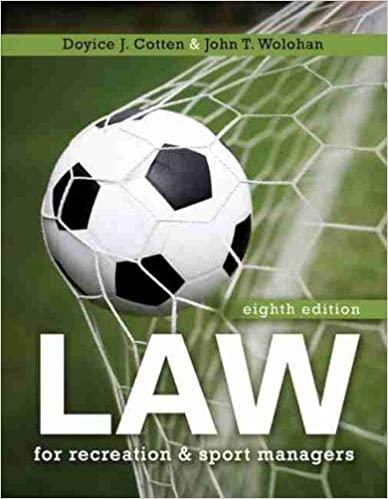Question
John, a graduating senior political science major, is applying to law school. He has had an enjoyable undergraduate career and garnered many experiences, both academic
John, a graduating senior political science major, is applying to law school. He has had an enjoyable undergraduate career and garnered many experiences, both academic and social which will assist him on his chosen path to becoming an attorney. Unfortunately, his decisions have not always been wise. During his sophomore year while living in the residence halls, he was documented as having violated the illegal drugs policy on marijuana twice. He was placed on University Probation for one year (as well as several educational sanctions), and successfully completed his year. As he was counseled during the judicial hearing, the record of his misconduct is kept on file with the university according to their policy of maintaining student judicial records for five years after graduation. The law schools to which John plans to apply require a records check which includes conduct as well as academic work.
John's father is also an attorney (although he is a tax attorney, and not one well versed in higher ed law), and accompanies John to the office of the dean to discuss the situation. They both argue that disclosing this information on John's law school application will be detrimental to his future, and request that you do not release the information.
What are the legal concepts that you need to be aware of in this situation? How do those concepts impact your decision-making in this case, and how will you address this situation?
Step by Step Solution
There are 3 Steps involved in it
Step: 1

Get Instant Access to Expert-Tailored Solutions
See step-by-step solutions with expert insights and AI powered tools for academic success
Step: 2

Step: 3

Ace Your Homework with AI
Get the answers you need in no time with our AI-driven, step-by-step assistance
Get Started


